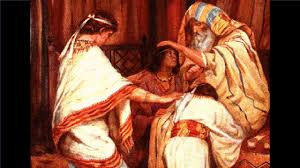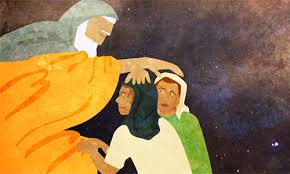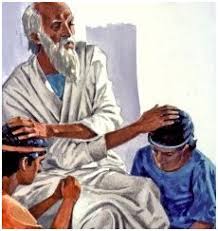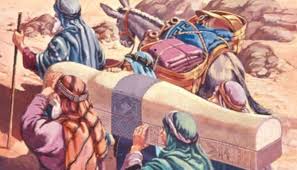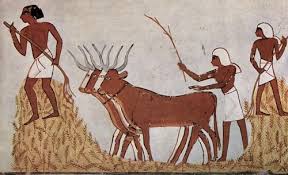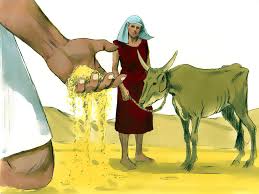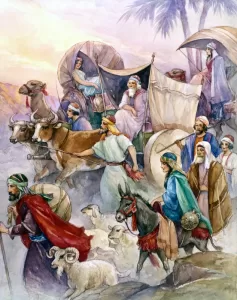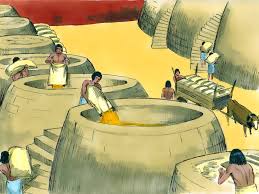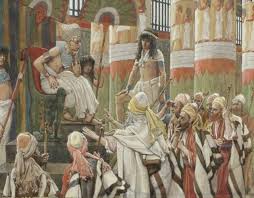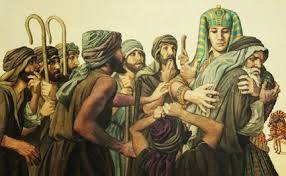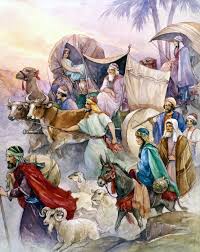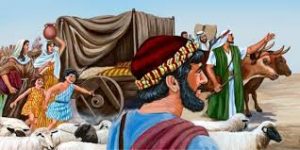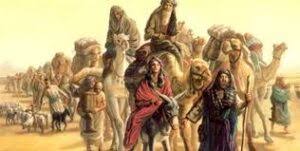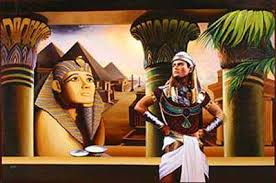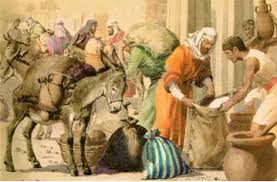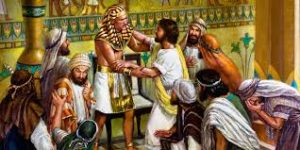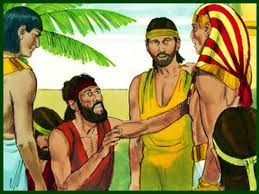Kz – Then Isra’el said to Joseph: I am About to Die, but God Will Be With You 48: 21-22
Then Isra’el said to Joseph:
I am About to Die, but God Will Be With You
48: 21-22
Then Isra’el said to Joseph: I am about to die, but God will be with you DIG: Where was the land of your fathers that Ya’akov was talking about? When Joseph replaced Reuben as the firstborn, how did he receive a double portion? What two word plays are seen here and what was Jacob saying to Yosef?
REFLECT: Do you have a light touch on the things of this world? Or are you building your mansion in the here and now? In what sense are you an alien or a stranger?
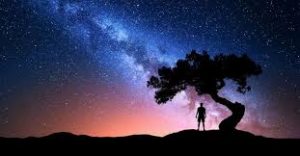
This chapter ends with a prophecy of the future exodus out of Egypt and a return to the Promised Land. Then Isra’el said to Joseph, “I am about to die in Egypt, but God will be with you and take you back to the land of your fathers. The old patriarch believed that ADONAI would restore his family to the land of your fathers. To have referred to this land as the land of Canaan would arouse much less emotion than the land of your fathers.753 Nevertheless, convinced that the LORD would take them back to the land of promise, Isra’el said that a double portion belonged to Yosef.
Through his sons, Joseph had replaced Reuben as the firstborn of Isra’el (First Chronicles 5:1-2) and as a result, not only received a double portion through Ephraim and Manasseh, he also received a double portion of land. There are two wordplays here. First, Isra’el said: And I give you one portion more than your brothers (NASB). The Hebrew word for portion is shechem, which is a wordplay on the name of the city of Shechem.754
In the second wordplay ADONAI said that this portion was a ridge of land that Isra’el took from the Amorites with his sword and his bow. The Hebrew word for ridge of land is skm, which is another wordplay on the city and district of Shechem. This phrase is in the Hebrew perfect tense, which, when used prophetically means an event in the future that is viewed as an accomplished fact today. Isra’el wasn’t looking back, he was looking forward. There were no Amorites at Shechem when Jacob’s sons slaughtered the men there (to see link click Ie – The Slaughter at Shechem by Simeon and Levi). But there would be when Joshua conquered Canaan after the exodus from Egypt and forty years of wilderness wanderings (Joshua 2:10, 3:10, 7:7, 9:1, 9:10, 10:5, 10:12, 11:3, 12:2, 12:8, 13:4, 13:10, 13:21, 24:8, 24:11, 24:15 and 24:18). Therefore, Ya’akov regarded that ridge of land as a pledge of the future possession of the whole land of promise. In the piece of land purchased there, the bones of Joseph were eventually buried (Joshua 24:32).755
Yosef did inherit the city of Shechem, which sat near the border of the tribe of Ephraim and the tribe of Manasseh (Joshua 17:7-9). This is also confirmed in the Gospels where we read that Yeshua had to go through Samaria. So He came to a town in Samaria called Sychar, which is a suburb of Shechem, near the plot of ground Jacob had given his son Joseph (John 4:5-6). This area has been an area of controversy up to the present time. It is here that modern Isra’el wants to build, on the West Bank.756
The promise that the Hebrews would one day return to the land of their fathers, and that it would be an eternal possession for them, is a central and significant one in the present story (and the whole book of Genesis for that matter). Yes, the Hebrews were able to take possession of some property and land in Egypt, but that was not the Promised Land. They were not to settle down there and think that it was! The Hebrews were to understand that they were aliens and travelers in a foreign land (Acts 7:6 and Hebrews 11:13).
The Scriptures teach that the Church today, made up of both Jews and Gentiles (Ephesians 2:11-22), is in a similar situation. Believers are merely aliens and strangers in the world (First Peter 2:11). This world is not our true inheritance or home. Something greater awaits us! As Kefa so wonderfully announces: Praised be God, Father of our Lord Yeshua Messiah, who, in keeping with His great mercy, has caused us, through the resurrection of Yeshua the Messiah from the dead, to be born again to a living hope, to an inheritance that cannot decay, spoil or fade, kept safe for you in heaven (First Peter 1:3-4 CJB). So let us not build mansions on the earth as if this were our permanent residence. Let us live in tents until we are called to the great mansion that God has prepared for His people for eternity.757
When Joseph had originally been called to his father’s deathbed (48:1), the other brothers were probably called as well. They came as quickly as they could and when Isra’el had finished speaking to Yosef, his other sons were present. On his deathbed, then, he had something to prophesy to each one of them.



